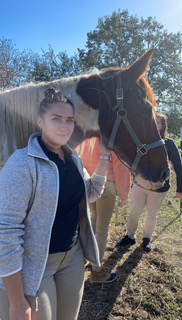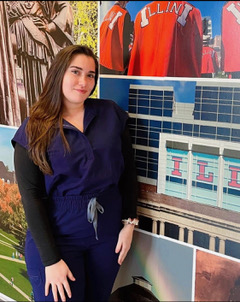What Does Earning a DVM (Doctorate of Veterinary Medicine) Entail?
Should I go to veterinary school? Although there’s no right or wrong answer, if it’s something that you’ve always dreamed about, if you have passion and drive and can’t see yourself doing anything else because that is the one thing you’ve always wanted to do since you were little, then the answer is ABSOLUTELY.
Yes, it will be hard. Yes, it will be exhausting at times. And yes, you will have to give it your absolute all, but I promise that after all of that hard work, it will be one of your proudest moments when you finally say, “I did it, I AM a veterinarian.”
School, School, and More School
Now, of course, having passion and drive is great, but how do you really get there? Well, if I count the number of years that I have spent in school (starting from my very first day in kindergarten; yes, that counts too!), it would be about 4/5ths of my life. To be exact, I have spent 22 years at an educational institution of some sort.
Supe que quería ser veterinaria desde muy joven, por eso decidí asistir a la Escuela Secundaria de Ciencias Agricultural de Chicago.
Dra. Angélica Calderón
Let’s take this way back. Now that you got through elementary school and graduated high school, you need to go to college and complete various prerequisites needed for veterinary school. (Prerequisites include the dreaded subjects of physics, chemistry, organic chemistry, anatomy, and biochemistry, just to name a few). Every veterinary school is different so it is important to keep up with the admissions websites and keep track of what is required for their application process.
There is no specific major required, as long as all of the prerequisites for the veterinary school you are applying to are met. And finally, the GRE—the Graduate Record Examination—is required for most veterinary schools. The GRE tests students on verbal reasoning, quantitative reasoning, critical thinking, and analytical writing skills.
Although getting good grades is very important and obtaining a high GRE score will certainly be very appealing to the admissions committee, the application process entails much more.
Grades Aren’t Everything
Yes, you heard that right. Let’s just say that you don’t have to be #1 in your class to get into veterinary school. During the application process, experience, extracurricular activities, and most important letters of recommendations are aspects that can be of great value. It is very important to start working on these parts of the application very early.
I knew that I wanted to be a veterinarian at a very young age. That is why I decided to attend the Chicago High School for Agricultural Sciences. Did you know they have one of the last standing farms in Chicago? I was fortunate enough to take animal science at CHSAS for two years and even attended veterinary camp at Michigan State University with my class. My animal science teacher was actually a U of I veterinary graduate, and she wrote one of my letters of recommendation.

During my time in college at the University of Illinois-Chicago, I was part of a club called ASB (Alternative Spring Break), where we traveled to various states and participated in volunteer projects. I traveled to Kentucky on two separate occasions. The first trip was to Independence, Ky., where I worked with the Milestones Equestrian Achievement Program. There I learned and cared for their horses and assisted in their equestrian program. The second trip was to Mammoth Cave, Ky., where I was able to cave dive and count bats as they were undergoing a bottleneck due to poor water conditions from local landfills. I was also able to test the water from various caves and educate elementary school students on the importance of keeping local waters clean, as water quality has a big impact on local animal populations.
My favorite trip was to Emerald Coast Zoo in Crestwood, Fla., where I was able to help a very passionate family restore an old zoo they had purchased. During my time at UIC, I also worked at Archer Animal Hospital for two years where I had various duties, as I was one of only two employees in the whole clinic. Working alongside Dr. Vinu made my passion for veterinary medicine even greater.
As you can see it is important to start early, not only with the educational requirements for veterinary school but also with animal experiences and resources for letters of recommendation. In high school I was able to get farm animal experience, during college I was able to get exotic animal experience, and while working as a veterinary assistant I was able to get small animal experience. All of these experiences also led me to great resources for letters of recommendation.
Finally Got into Veterinary School!!! Now what?
If that sounded hard and complicated, well, that was the easy part.
You got into veterinary school. Congratulations! Now things are going to get interesting. Different schools have different curriculums, but I’ll talk about my experience. First year was quite tough for me. It was a new experience being away from home and there was so much information to absorb.
First year consisted of learning the “normals” for various species, second year consisted of learning the “abnormals” of various species, and third year was clinical applications and putting the big picture together.

Read more about her.
Not only did we have to learn anatomy, physiology, neurology, pharmacology, oncology, ophthalmology, and all the other “ology’s” you can think of, but we had to learn them for various species. That not only included cats and dogs, but also horses, cows, chickens, other farm animals, exotic animals like reptiles, guinea pigs, rabbits, pet birds, etc.
Fourth year was my favorite year in veterinary school, apart from having to take the NAVLE (North American Veterinary Licensing Exam), which is the veterinary national boards exam required to get licensed to practice veterinary medicine. Things finally made sense and I was putting all of my hard work into practice. Everything that I had studied and learned paid off, and it was the best feeling ever. I was finally a veterinarian.
A Beautiful Career
I always knew that I wanted to work in small animal primary care, which is why I decided to start working after graduation. However, that’s not the case for everyone. Some of my classmates have a passion for exotic animals or want to specialize after graduation. That calls for additional schooling. Not only do they have to do a rotating internship, but they also have to do a three-year residency and take another board exam to become a specialist. That’s another 4+ years of school, but I won’t get into those details.
Veterinary medicine is a very beautiful and rewarding career. It takes a lot of work, motivation, passion and drive to get to the finish line, but with the right mindset, anything can be accomplished.
– Dr. Angelica Calderon
